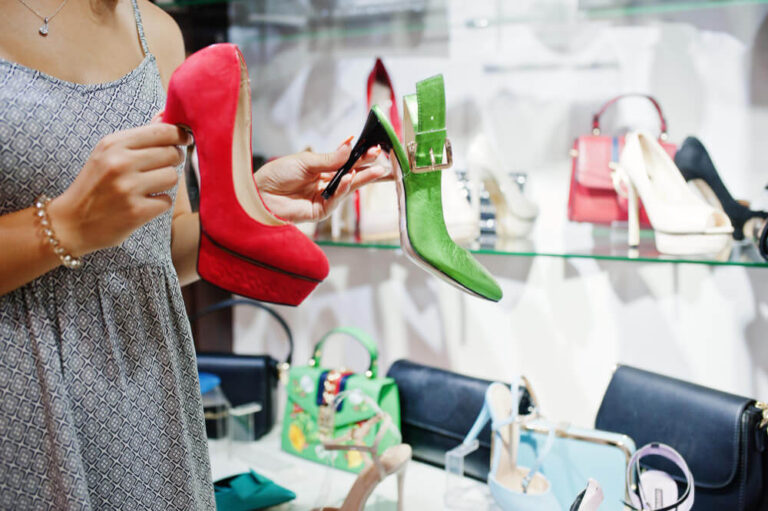Footwear is more than just a necessity—it’s about comfort, style, and durability. Over the years, many shoe brands have built loyal customer bases by focusing on these values. One such brand is Aravon Shoes, known for combining orthopedic comfort with fashionable designs. But with so many changes in the footwear industry, many people now ask: Did Aravon Shoes go out of business? This article explores the brand’s history, its current situation, and what the future may hold.
A Little Background about Aravon Shoes
Aravon Shoes was launched by New Balance, a company well-known for athletic footwear. Unlike traditional sneakers, Aravon specialized in designing stylish shoes for women that also provided orthopedic support. Their focus was on comfort technology—shoes with cushioned soles, wider sizes, and designs made for all-day wear.
Aravon’s target customers were women who wanted both fashion and function. Over time, the brand gained recognition for producing shoes that could handle daily use without compromising on looks. It was especially popular among professionals and individuals who needed supportive shoes for health reasons.
Did Aravon Shoes Go Out of Business?
Yes, Aravon Shoes was discontinued by New Balance in 2020. The decision was part of a larger strategy to simplify New Balance’s product offerings and focus on core categories. This news disappointed many loyal customers who had relied on Aravon for years.
When the brand was shut down, New Balance directed customers to its sister brands like Dunham and Cobb Hill, which still offer comfort-oriented footwear. However, the absence of Aravon left a gap in the market, especially for women who valued both orthopedic support and stylish designs.
Reason for Closure of Aravon Shoes
Aravon Shoes, created by New Balance, earned a loyal following for its stylish yet orthopedic-friendly footwear. Nevertheless, New Balance made the decision to drop the brand in 2020. The closure wasn’t due to lack of demand—many customers loved Aravon—but rather part of a larger strategy to simplify New Balance’s product portfolio.
Maintaining multiple comfort shoe lines required significant resources, and Aravon was seen as less essential compared to other brands. At the same time, the footwear industry was changing. Online competition, shifting shopping habits, and rising costs all played a role in the decision to phase out Aravon.
What Happens to the Employees of Aravon Shoes
Since Aravon was a division of New Balance, the closure didn’t mean that all employees lost their jobs. Many staff members who worked on Aravon were shifted to other roles within the company, particularly in related brands such as Cobb Hill or Dunham.
This smooth transition meant that the knowledge and experience of the Aravon team were not lost. Instead, their expertise in comfort shoe design helped strengthen other areas of New Balance’s business. Unlike standalone companies that close completely, Aravon’s parent company provided some stability for its workforce.
Customer Impact: What Happens to Loyal Shoppers?
The biggest impact of Aravon’s closure was felt by its customers. Loyal shoppers who depended on the brand for supportive, stylish shoes were left disappointed. For many women, especially those who needed wide sizes or shoes to ease foot pain, Aravon was a trusted solution.
After the closure, New Balance directed customers toward its sister brand Cobb Hill as an alternative. While some found suitable replacements, many still prefer Aravon’s unique blend of comfort and style. Today, leftover Aravon stock can sometimes be found online through resellers, but availability is limited.
Is Aravon Shoes Coming Back to the Market Soon?
At present, there are no official plans to relaunch Aravon Shoes. New Balance has not announced any revival, and the company continues to focus on strengthening other lines. That said, the demand for fashionable orthopedic shoes remains strong, so the spirit of Aravon lives on in related brands and new comfort-focused products.
For loyal fans, the best option is to explore alternatives like Cobb Hill, Vionic, Dansko, or Clarks. These companies offer shoes with a similar balance of comfort and style, though many customers still insist that Aravon was in a league of its own.
Conclusion
The closure of Aravon Shoes was a strategic choice by New Balance to streamline its offerings, not a reflection of poor product quality. Employees largely transitioned within the company, but customers lost a beloved brand that combined fashion with orthopedic support.
Although Aravon is unlikely to return soon, its influence remains strong in the comfort footwear market. For loyal shoppers, finding alternatives may be challenging, but the legacy of Aravon continues to inspire designs across the industry.
Also Read:

